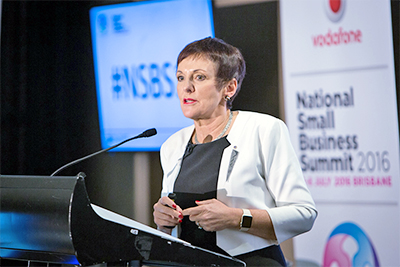Call for businesses to offer flu vaccinations in 2020 after devastating flu season this year
EMPLOYERS are being urged to plan ahead for the 2020 flu season and offer their staff flu vaccinations to reduce sick days and boost productivity, following this year’s record-breaking flu season which resulted in about 812 deaths and 298,120 Australians diagnosed with influenza.
TerryWhite Chemmart CEO Duncan Phillips said absenteeism was currently costing Australian businesses about $33 billion every year, underscoring the results of a 2017 survey where 84 per cent of organisations said reducing absenteeism was a focus for their business.
“Influenza is a major cause of absenteeism and failure to take action can impact your employees’ health and that of your bottom line,” Mr Phillips said. “In 2018, there were 58, 570 confirmed laboratory notifications of influenza in Australia. This year has seen a 408 percent increase in confirmed laboratory notifications making it officially the worst season on record.”
In response to this ongoing cost to business, Mr Phillips said health and wellness programs were becoming more popular, with more than two in five Australian workers (43%) inow being offered a wellbeing program through their workplace.
“Organisations should plan ahead for their wellness programs to support preventative health, reduce the potential for absenteeism and boost worker engagement and productivity,” Mr Phillips said.
“Flu vaccination programs are the most commonly offered workplace health initiatives, with 70 per cent of companies offering programs onsite for employees and 30 per centvii subsidising employees to receive a vaccination offsite.
“At TerryWhite Chemmart, we offer a Corporate Flu Vaccination program that has received very positive client feedback. Employers – who provide flu vaccinations to staff through our electronic voucher system – appreciate how simple and easy the service is. Staff can book in a flu vaccination at any time that is convenient to them during the flu season at one of our participating pharmacies.
“By offering flu vaccinations through a health and wellness program, businesses can positively impact their employees’ health and help reduce absenteeism. Healthy employees not only live better lives, but they also help boost the working lives of their colleagues and help to deliver better work outcomes,” Mr Phillips said.
TerryWhite Chemmart professional practice manager Chris Campbell said the best prevention against the flu was an annual flu vaccination, as flu strains evolved constantly.
“The influenza virus can easily spread from person to person, with infected patients contagious 24 hours before the presentation of symptoms and infectious for up to a week after the onset of symptoms. Flu symptoms usually include a sore throat, runny nose, headache, fever and coughing,” he said.
“The highly infectious nature of the virus means it can have a massive impact on the workplace, with the virus circulating quickly between co-workers and even onward to their family or friends.”
Under the TerryWhite Chemmart Corporate Flu Vaccination program, corporate partners receive coded flu vaccination vouchers to distribute to their employees, with employers only paying for vouchers redeemed. Employees simply book their appointment online at www.terrywhitechemmart.com.au/flu and enter their unique code to receive the vaccination at a time and location convenient to them at participating pharmacies.
TerryWhite Chemmart’s professionally trained pharmacists will administer the quadrivalent flu vaccination, which helps to protect employees against four strains of influenza. The flu vaccination service is completed within minutes in a private consultation space.
https://www.terrywhitechemmart.com.au/corporateflu/
ends
- Created on .

 How to resolve AdBlock issue?
How to resolve AdBlock issue? 